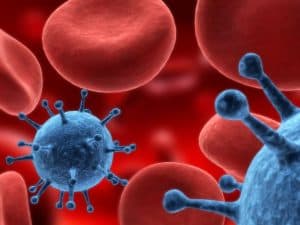
Survivors of Hodgkin lymphoma over twice as likely to suffer second cancer
pharmafile | March 14, 2017 | News story | Manufacturing and Production, Research and Development | Hodgkin lymphoma, ICR
New research emerging from the Institute for Cancer Research (ICR) has found that those previously treated for Hodgkin lymphoma are 2.4 times more likely to develop a second type of cancer. The risk of developing a second instance of cancer was particularly high if the individual had relatives that had also suffered from cancer.
The study was conducted by scientists at the ICR alongside researchers in Sweden and Germany. The combined study analysed 9,522 patients with Hodgkin lymphoma and 28,277 relatives of the patients.
The results of the study found that there was an increased risk compared with an equivalent portion of the general population, in terms of age and sex, and that the risk remained increased even 30 years after the treatment. Patients who had suffered from Hodgkin lymphoma and had relatives that had lung cancer were three and half times more likely to develop lung cancer.
Another aspect to the study found that age was particularly important in the increased risk of a second occurrence of cancer; women who were diagnosed with Hodgkin lymphoma under the age of 35 had 14% risk of developing breast cancer over the next 30 years while those diagnosed over 35 had only a 3% chance.
Professor Richard Houlston, Professor of Molecular and Population Genetics at the ICR, aid: “As cure rates for cancer improve, we are increasingly thinking about the long-term health of survivors, and how we can personalise the care they receive to take into account their own individual risks. This major new study has tracked the health of people who have survived Hodgkin lymphoma over several decades in order to provide a comprehensive assessment of the long-term risk of cancer. The research gives us invaluable information which we can look to use to tailor monitoring, screening or preventative treatment.”
The study did not reveal the reasons for this increase in risk but, as Houlston mentions, this may research may be borne in mind by GPs and doctors when follow up is conducted on those who have suffered from Hodgkin lymphoma.
Ben Hargreaves
Related Content

ICR identifies key “microRNA” gene driving chemotherapy resistance in cancer
Researchers at the Institute of Cancer Research have discovered that a small RNA molecule known …

Top Ten most popular articles on Pharmafile.com this week!
The Institute for Cancer Research (ICR) called for new measures to increase the speed with …

ICR calls for faster access to innovative cancer drugs
The Institute of Cancer Research (ICR) has called for faster access to innovative cancer drugs …








